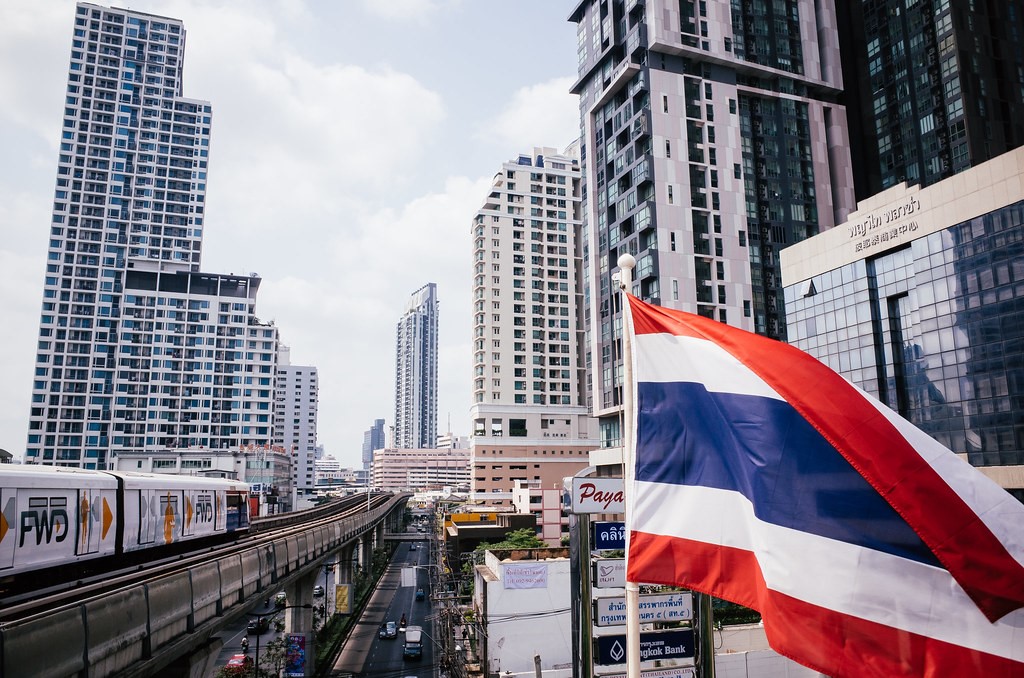
China Monitor is our brand-new program that analyses China’s economic and foreign policies. It also aims to predict the consequences of Beijing’s policy for the global economy, the EU as well as Central and Eastern European countries such as Poland.
Date: 25 August 2021
Author: Patryk Szczotka
More Chinese Vaccines Head to Thailand
Faced with a surge of COVID-19 cases, the Thai government announced on August 17, 2021, that it will purchase 12 million vaccines from the Chinese company Sinovac Biotech. This is part of Thailand’s plan to combat the pandemic, which includes mixing vaccines from different manufacturers.

Thai company Siam Bioscience, owned by the King of Thailand, was awarded a license by AstraZeneca last year, aiming to become a local production and distribution center of the COVID-19 vaccine. However, in July 2021, it became evident that the production targets of the factory would not be met. This complicates the situation for Thailand, which is struggling with an escalating pandemic situation. Nowadays, the number of COVID-19 cases in Thailand is the highest since the beginning of the pandemic – there are about 21,000 new infections daily[1]. Around 18.37 million Thai citizens (18.83% of the total population) has already received one dose of the vaccine (as of August 18, 2021), while 5.23 million residents (7.49% of the total population) are fully vaccinated[2]. This data indicates that Thailand is still far from reaching herd immunity to COVID-19.
The current production capacity of the Thai factory is 15 million doses per month, 40% of which is expected to satisfy the needs of Thailand. This is far from the assumptions of the Thai government’s plan. According to it, six million doses were projected to be delivered in June, 10 million per month between July and November, as well as five million in December, which adds up to a total of 61 million jabs this year[3]. Probably, this was the reason why the Thai government made a decision to purchase additional vaccines from the Chinese manufacturer.
The Thai plan assumes the Sinovac jab to be administered first, and the AstraZeneca injection second. Thailand would thus become the first country to mix Western and Chinese-made jabs in the same vaccination cycle. The introduction of the second dose from a European manufacturer aims to increase the level of protection against the virus. This decision followed new findings of a Thai study, which raised doubts about the long-term protection after administering two doses of the Sinovac COVID-19 vaccine (CoronaVac). According to a joint analysis by Thammasat University’s faculty of medicine and the National Center for Genetic Engineering and Biotechnology, antibody levels in people fully vaccinated with the Sinovac COVID-19 jab drop by half every 40 days[4].
It is worth to note that this information has not been commented on in any way by the government news agency Xinhua. In an article, it underlines that jabs manufactured in China are the foundation of Thai vaccination strategy against COVID-19 and presents opinions on the high effectiveness of Chinese jabs. Moreover, the Chinese news agency stresses that in the face of issues with manufacturing at a factory owned by Siam Bioscience, the Chinese injections are protecting Thailand from further infections[5]. The current positive effect of the vaccines on the Chinese image in the domain of the media and politics, may quickly lose its significance in the long run. This risk is primarily associated with doubts related to long-term protection against infection. Thailand’s strategy of mixing vaccines is a clear sign that this issue is already being recognized.
If more countries, which are using the Chinese injections, choose to implement a vaccination strategy similar to that of Thailand, or decide to use only the Western jabs, the Chinese vaccine diplomacy could face a serious slowdown. It is worth remembering, however, that in the face of preferential terms, or problems with the availability of Western-made vaccines, the argument of low long-term efficacy may not be sufficient to discourage from the use of Chinese products against SARS-CoV-2. Governments of countries (especially the developing ones) may decide to continue buying jabs from the Chinese manufacturers. For this reason, Western states should seek to maximize their own vaccine production and abandon the so-called “vaccine nationalism” in order to effectively compete with the Chinese in this domain.
[1] https://graphics.reuters.com/world-coronavirus-tracker-and-maps/countries-and-territories/thailand/
[2] https://ourworldindata.org/covid-vaccinations?country=~THA
[3] https://thediplomat.com/2021/07/thai-astrazeneca-vaccine-production-falls-short-of-target/
[4] https://www.bangkokpost.com/thailand/general/2147667/sinovac-produced-antibodies-halve-every-40-days
[5] http://www.xinhuanet.com/english/asiapacific/2021-07/25/c_1310083893.htm
Support Us
If content prepared by Warsaw Institute team is useful for you, please support our actions. Donations from private persons are necessary for the continuation of our mission.
All texts published by the Warsaw Institute Foundation may be disseminated on the condition that their origin is credited. Images may not be used without permission.















